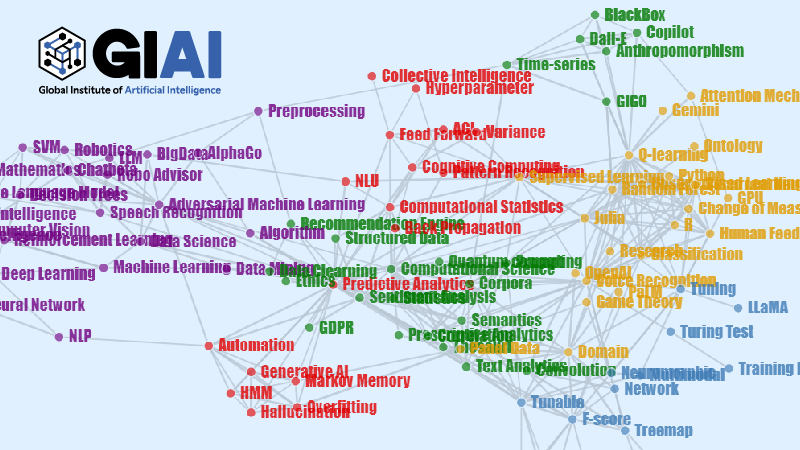ChatGPT to replace not (intelligent) jobs but (boring) tasks
Published
Modified
ChatGPT is to replace not jobs but tedious tasks
For newspapers, 'rewrite man' will soon be gone
For other jobs, the 'boring' parts will be replaced by AI,
but not the intellectual and challenging parts
There has been over a year of hype for Large Language Models(LLMs). At the onset and initial round of hype, people outside of this field asked me if their jobs were to be replaced by robots. By now, over a year of trials with ChatGPT, they finally seem to understand that it is nothing more than an advanced chatbot that still is unable to stop generating 'bullshit', according to Noam Chomsky, an American professor and public intellectual known for his work in linguistics and social criticism.
As my team at GIAI predicted in early 2023, all LLM trials will be able to replace some jobs, but most jobs that will be replaced will be simple mundane tasks. That's because these language models are meant to find higher correlation between text/image groups, but still unable to 'intelligently' find logical connection between thoughts. In statistics, it is called high correlation with no causality, or simply 'spurious relations'.

LLMs will replace 'copying boys/girls'
When we were first approached by EduTimes back in early 2022, they thought we could create an AI machine to replace writers and reporters. We told them the best we can create is to replace a few boring desk jobs like 'rewrite man'. The job that requires to rewrite what other newspapers have already reported. 'Copy boy' is one well-known disparaging term for that job. Most large national magazines have such employees, just to keep their magazines to be up-to-dated with recent news.
Since none of us at GIAI are from journalism, and EduTimes is far from a large national magazine, we are not aware of exact proportion of 'rewrite man' in large magazines, let alone how many articles are re-written by them. But based on what we see from magazines, we can safely argue that at least 60~80% articles are probably written by the 'copy boys/girls'. Some of them are at the high risk of plagiarism. This is one sad reality of journalism industry, accoring to the EduTimes team.
The LLM that we are working on, GLM(GIAI's Language Model), isn't that different from other competitors in the market that we also have to rely on text bodies' correlations, or more precisely 'associations' by the association rules in machine learning textbooks. Likewise, we also have lots of inconsistency problems. To avoid the Noam Chomsky's famous accusation, 'LLMs are bullshit generators', the best any data scientist can do is just to set a high cut-off in support, confidence, and lift. Beyond that, it is not the job of data models, which includes all AI variants for pattern recognition.

But still correlation does not necessarily mean causality
The reason we see infinitely many 'bullshit' cases is because the LLM services still belong to statistics, a discipline to find not causality but correlation.
If high correlation can be translated to high causality, there has to be one important condition satisfied. The data set contains all coherent information so that high correlation naturally means high causality. This actually is where we need the EduTimes. We need clean, high quality, and topic-specific data.
After all, this is why OpenAI is willing to pay for data from Reddit.com, a community with intense and quality discussions. LLM service providers are in negotiation with U.S. top newspapers precisely the same reason. Although it does not mean that coherent and quality news articles will give us 100% guarantee in correlation to causality, at least we can establish a claim that disturbing cases will largely be gone without time-consuming technical optimization.
By the same logic, jobs that can be replaced by LLMs or any other AIs with pattern matching algorithms are the ones that have strong and repeating patterns that does not require logical connections.
AI can replace not (intelligent) jobs but (boring) tasks
As we often joke around at GIAI, technologies are bounded by mathematical limitations. Unfortunately, we are not John von Neumann who can solve every impossible mathematical challenges as easy as college problem sets. Thanks to computational breakthroughs, we are already at the level far from what we expected 10 years ago. Back then, we did not expect to extract corpora from 10 books in a few minites. If anything, we thought it needed weeks of supercomputer resources. It is not anymore. But even with surprising speed of computational achievements, we are still bound to mathematical limits. As said, correlation without causality is 'bullshit'.
With the current mathematical limitations, we can say
- AI can replace not (intelligent) jobs but (super mega ultra boring) tasks
And, the replaceable tasks are boring, tedious, repetitive, and patterned tasks. So, please stop worrying about losing jobs, if yours torture your brain to think. Instead, plz think about how to use LLMs like automation to lighten your burden from mundane tasks. It will be like your mom's laundary machine and dish washer. Younger generation females no longer are bound to housekeeping. They go out to work places and fight for the positions that meet their dreams, desires, and wants.





















